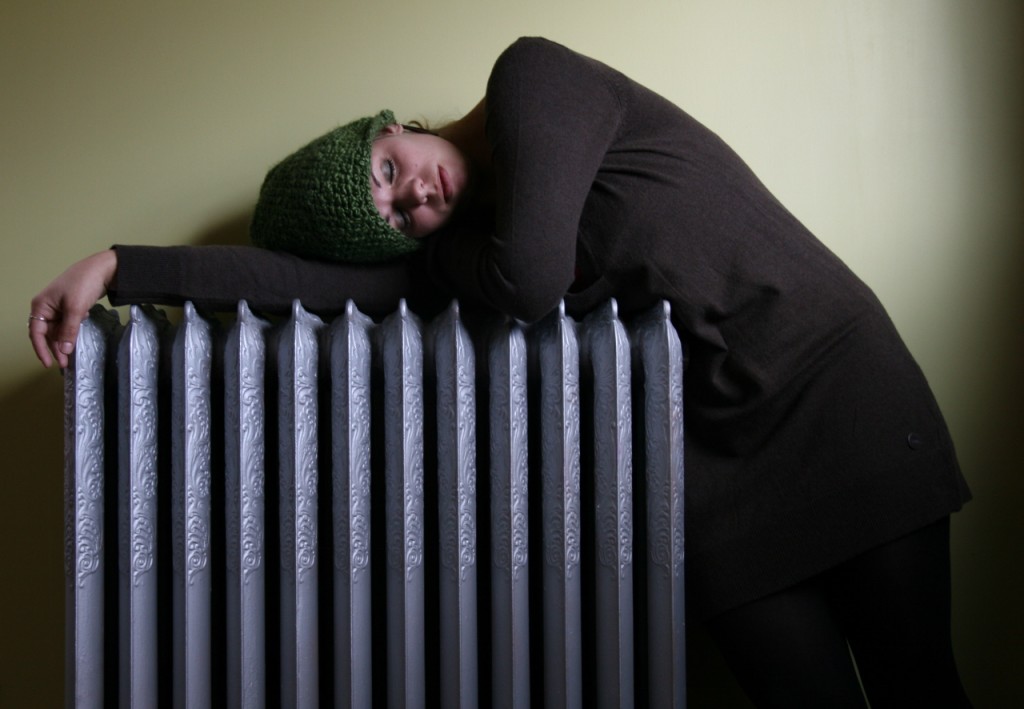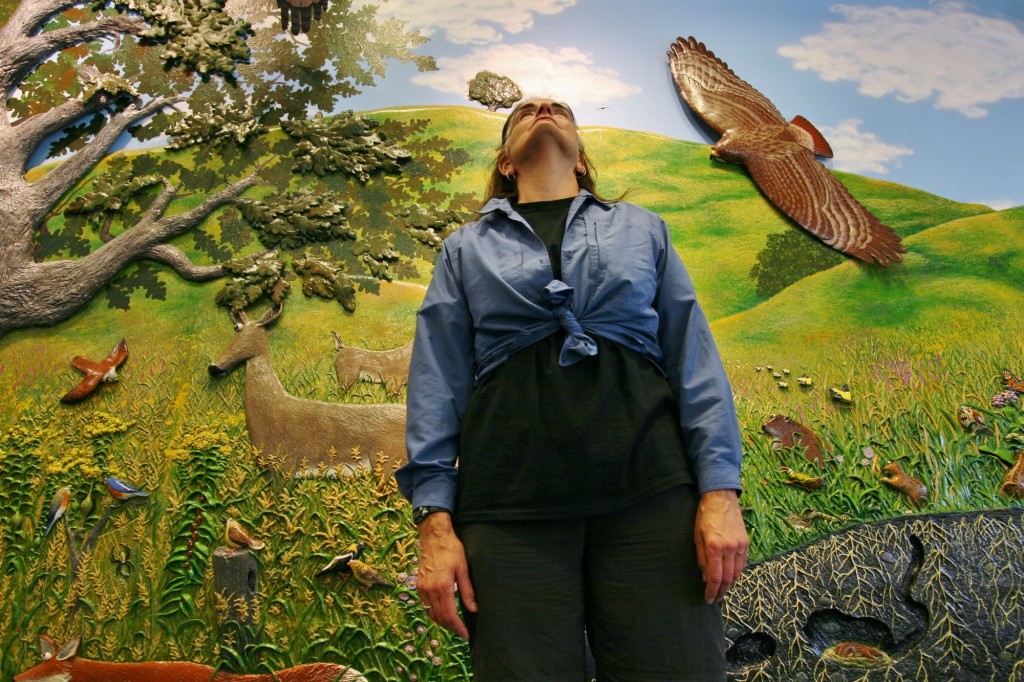
By Kate Haas
They gazed at me impassively, the man and the woman, each carefully neutral face masking—or so I imagined—the boredom of the entrenched bureaucrat settling in for a fifth hour of substitute teacher interviews.
“You arrive at the classroom,” said the guy, reading from a paper in front of him. “You find a vaguely written lesson plan. There are no administrators around to help. No one in the main office at all. What do you do?”
It was an implausible scenario, containing a hole a second-grader could have spotted. I was not here to point that out, I reminded myself. I was not here to be a wise-ass. This was my first formal job interview in seventeen years. I was here to play the game.
•••
Back in the 1980s, yanked by divorce from the stay-at-home life she’d imagined would continue indefinitely, my mother took the first job she could find, writing jacket copy for a major evangelical publishing company. My sister and I snickered at the freebies she brought home from the office: Christian Archie comics; spiritual marriage advice; and our favorites, a series of YA novels by a guy who operated a ministry for teen prostitutes, each book titled with the name of a girl (Vicki, Lori, Traci), its plot detailing her sordid downward spiral from teenage rebellion to the streets, followed by an uplifting finale at the ministry’s safe house, and a tearfully repentant Lori (or Vicki or Traci) flinging herself into the arms of Jesus.
My mother was an agnostic whose crammed bookshelves reflected her highbrow literary tastes: Jane Austen, Henry James, The New Yorker. But the divorce settlement favored my father, a man with a sometimey attitude toward child support. So with kids to raise and bills to pay, Mom peeled from our VW’s bumper the sticker proclaiming the Moral Majority to be neither, pulled on her nylons, and went to work.
“A woman’s got to do what a woman’s got to do,” she used to tell my best friend Clare’s mother when they got together on weekends to drink cheap white wine and swap stories about their lawyers and no-good exes.
•••
“It’s not about how good you are,” Clare counseled a few days before my interview. Like me, my old friend had quit teaching years ago. She’d recently gotten back in. “It’s whether or not you can speak the lingo.”
I remembered the acronym-larded professional development sessions back in the day, mandatory powerpoint presentations aimed at tired teachers surreptitiously trying to grade papers and plan lessons while simulating dutiful attention to the flavor of the month in educational strategy.
“It’s way worse now, with all the Common Core,” Clare said. “Don’t get me started. But you remember: redirect, assessment, collaborative learning, ownership, SSR.”
“SSR—shoot, I forgot all about that.” (SSR, for the uninitiated, stands for Sustained Silent Reading. SSR is to regular old reading as “sanitation engineer” is to “janitor”: the same damn thing.)
“Don’t worry, sister, you know what you’re doing,” Clare said. “Just tell ’em what they want to hear. Play the game.”
•••
I quit teaching high school at the turn of the millennium to stay home with my baby. It was a choice I was able to make because my husband earned just enough to support the three of us. But there was another reason I quit my job: I didn’t have the passion. The great teachers had it. Walking past their classrooms, you heard the bustle, felt the energy. Those teachers shone, with a core of dedication that couldn’t be faked. Sure, they griped about the troublemakers. They rolled their eyes, recounting some mouthy tenth grader’s outrageous comment. But their voices—exasperated yet understanding—gave them away. They loved those troublemakers.
I didn’t.
I was a decent teacher. I worked hard and planned my lessons carefully. I told my students that everyone has a story to tell. Real or imagined, we all have that story. I explained point of view, and starting a new paragraph every time the speaker changes, and providing necessary background information. I reminded them, more times than I ever imagined I would, to end sentences with punctuation.
My students wrote stories and essays and workshopped them together, drafting and revising multiple times before presenting their finished work. As a class, we applauded each presentation, and I pinned the finished pieces ceremonially to a special bulletin board with a shiny silver border. The kids acted like all this was no big deal, but it was.
When I informed my ninth graders that they would memorize the prologue to Romeo and Juliet, they didn’t believe they could do it. “Fourteen lines, guys, fourteen lines,” I told them. For the next month, we started every class by standing up and reading the prologue in unison. Sometimes we marched around the room reciting it. My students made a great show of rolling their eyes and muttering. (“Dude, can you believe this?”) But around they went, quietly at first, shuffling on the scuffed floor, then with increasing gusto: Two houses, both alike in dignity, in fair Verona where we lay our scene…They had it down in two weeks. It was only fourteen lines, after all.
Sometimes, even at the end of a long day, the thrill of this would hit me: these words, ringing in the California air, four centuries and a world away from their birthplace.
But I didn’t have the passion. I was weary of contending with the core of disruptive students who filled my classroom, angry kids I couldn’t seem to reach. I envied people who were done at the end of the workday. My job was a never-ending slog of lesson-planning, essay-reading, and grading. It ate up every evening, and every weekend, and I couldn’t imagine continuing and raising a family, too. When I quit to stay home, the freedom was exhilarating.
Still, four years later, I felt a pang when my license expired. I didn’t want to teach again, but it was disquieting to realize I couldn’t. The licensing commission had a lot of nerve, I thought. No longer good enough were my master’s degree, years of experience, and the slew of National Teacher Exams I’d passed. Now they wanted coursework before I could renew. That meant going back to school. My children were one and four. It wasn’t going to happen.
But what if the worst occurred? What if I was left on my own, like my mom, to raise my children? All the stay-at-home mothers talked about that. Few of us were in a position to easily re-enter the professions we’d left. Without my teaching license, what job was I qualified for that could support a family?
I tried to ignore those questions. Life insurance would take care of me if anything happened to my husband. As for the other possibility, I tried not to think about that, either. My husband brought me flowers every Friday and sent hand-drawn postcards when he was out of town, even for a night. He wasn’t going to leave me.
Part of me didn’t believe that. It was the part that remembered the wave. That’s what we call it now: the divorce wave, the surge of broken marriages beginning in the 1970s and peaking when my mother got her job with the Christian publisher. By the time those waters receded, not one of my friends’ families remained intact. Forty years later, Clare and I are still sloshing through the ruins, trying to spot the faulty foundations, the unstable beams, to identify exactly which imperceptible weaknesses rendered our parents unable to withstand the tide. Even now, part of me can’t help thinking of divorce the way I did as an eleven-year-old: a catastrophe that strikes without warning, a tsunami on a clear day.
That teaching license was my only route to higher ground. I needed it back.
When the kids were finally in school, I dug out my expired license and called the state to find out how much coursework was involved in renewing it.
“Fill out Application C and send in fingerprints and $225,” said the young man on the phone.
“Yes, I know,” I said. “But what about the education credits? How many will I need?”
“No credits. They changed the law four months ago. All you need now is the application, the fingerprints, and the $225. Do you want me to send you the forms?”
They changed the law.
I was unprepared for the elation that surged through me, the rush of astonished gratitude—all of which I promptly poured forth upon the hapless guy on the phone. It felt, at that moment, as though he had personally intervened on my behalf; if I could have reached through the phone to embrace him, I would have. Then, like Cagney or Lacey interrogating a perp, I proceeded to grill him. Was he absolutely sure about this? It applied to all licenses? Finally, I thanked him profusely, my brain thrumming like a violin string. In the space of a few minutes, with no effort at all, my employment prospects had shifted from service industry to professional grade.
Not that I wanted to teach again. I’d built up a freelance editing business over the years, and it was paying for extras, like summer camp and music lessons. I was done with the classroom. We didn’t need the money. I didn’t have the passion. But now—now I had the option. I was standing on higher ground.
•••
Just ask an English teacher, and they’ll tell you: nothing gold can stay. The easy license renewal turned out to be a one-time deal. Four years later, it wouldn’t be so simple.
“I don’t care what you have to do,” Clare said. “Don’t let that license expire.”
She didn’t need to elaborate. For three years now, ever since her husband left their marriage, Clare had been wading through deep water. From the opposite coast, I’d cheered her efforts get back in the classroom: enrolling in graduate school, taking after-school teaching gigs, updating a resume with a thirteen-year gap. The hardest part was renewing her expired license, an epic bureaucratic campaign spanning eighteen months and involving the tracking down of records in three states.
“Letting the license expire was my biggest mistake,” she warned me every time we talked, a speech that always reminded me of the anti-drug commercials of our youth. “Don’t let it happen to you.”
I didn’t intend to. After a semester of online coursework at my local community college, I possessed the fresh transcripts necessary to satisfy the state licensing commission for another three years.
Now here I was in the district administration building, interviewing for a job. Not that I wanted to be a substitute teacher, exactly. But this time, it wasn’t about whether or not I had the passion. What I had was two teenagers, one of whom would be applying to college in a year. What I had was residency in a city where substitute pay is among the highest in the nation. I could set my own schedule if they hired me here, contribute to the college fund, and still have time to write and edit. What I had, in fact, was the prospect of an ideal side gig. Yeah, I wanted this job.
But I didn’t need it.
My husband’s position at a public agency survived the recession, thanks to a stable tax base. And after his seventeen years there, we’re no longer balancing on a financial tightrope, the way we were when I first quit teaching. The mortgage would be paid on time if I bungled this interview, and the orthodontist’s bill. No one would go hungry in my house if these two didn’t like my answers.
I wasn’t thinking about that—not consciously, anyway—as I explained how I would amend that vague lesson plan on the fly, make it specific. I was focused on playing the game, nimbly referencing stalwarts of the Language Arts curriculum, like Of Mice and Men and Raisin in the Sun. I avoided pointing out that under no circumstance—except possibly the Rapture—would a public school’s main office be devoid of personnel at eight a.m.
Neither interviewer spoke when I finished. They looked at me expectantly.
I’d already described my disciplinary strategies and my approach to lesson planning. I’d talked about meeting each learner at their level. Wasn’t I speaking the lingo? Hadn’t I demonstrated my professional competence?
I launched into another example, this one based on using classroom clues to devise a lesson. Art on the wall indicates a unit on the Middle Ages? I’d have students write a dialogue between a serf and a knight, or an artisan and a priest.
Still no response. What more did these people want?
“I could do dozens of things in this scenario,” I said, perhaps inexpertly masking my exasperation. That was when it happened, when I heard myself add, “You know, this really isn’t rocket science.”
•••
My interviewers flicked glances at each other, then fixed me with identical fishy stares. After a long pause, the woman said “Do you have any questions for us?”
No, I did not.
I berated myself all the way to the parking lot. Substitute teaching is not, of course, rocket science. But Clare, or anyone who really needed that job, would never have permitted herself to say so. She wouldn’t have been so careless, not with the water rising around her.
But we all have a story, and in the one that’s mine to tell, my toes have never even gotten wet. I’m still not certain how to account for it.
At forty or fifty, not everyone is the same person they were at twenty or thirty or wants the same things. No one understands that better than people like Clare and me, who lived through the wave, who watched our fathers—and it was mostly the fathers—decide that, after all, our mothers were not the women they wanted to grow old with. For us, marriage felt like an extraordinary gamble, like stepping aboard a rocket, equipped with nothing to calculate its trajectory but love and hope.
My judgment is no better than Clare’s, or her mother’s, or mine. I haven’t worked at my marriage any harder than they did. Yet in my story, the man who seemed fundamentally decent and kind at twenty-five is still both of those things twenty years on. The young woman who decided to spend her life with him hasn’t changed her mind about that. The waters have held back from us. Which is why I’m standing here on dry ground, secure enough to be a wise-ass at an interview, a writer who doesn’t actually need a day job. Most of the time, it all feels like the sheerest luck.
Maybe they appreciated my honesty. Or maybe anyone with a credential and a pulse was going to get that job. Either way, I was hired. And that felt lucky, too.
•••
KATE HAAS is an editor at Literary Mama. Her essays have been published in The New York Times, The Boston Globe Magazine, OZY, Slate, and other venues. A regular contributer to Full Grown People, she lives in Portland, Oregon with her family. Read more of her writing at www.katehaas.com.

 Follow
Follow




